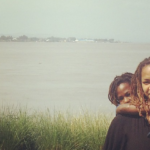A Day in the Life: Teaching in Australia

Sophie emails. She’s anxious about her English essay. Can I read it over for her? She’s got a full day of work today and can’t make it into uni. Another email from Chen, confirming that I will meet her today to go over her Anthropology essay. I post in our Faculty of Arts Facebook group to remind students of the drop-in sessions this afternoon. They will come if there is an essay due soon, and if not it will be a quiet session. But in the middle of the semester, it’s rarely a quiet session.
I’m the Student Engagement Officer for the Faculty of Arts at the University of Adelaide. I mainly work with first year students taking Humanities and Social Science courses. Because I have a BA in English and an MFA in Creative Writing, as well as a PhD in Gender Studies, I generally have the Humanities and Social Sciences covered. Of course, there’s a lot of content I don’t know, but I do know how to write an essay, and that’s what I help students do.
Even though these problems are old hat to me, they’re forever new to the first year students I meet.
Because I hold a sponsor visa through my Australian partner (now husband), I am teaching in Australia. My visa means that I’m treated just like any other Australian in terms of work. That’s handy, because my job, and most other jobs, wouldn’t have the budget or inclination to sponsor my work visa. I’m treated like anyone else, just another Australian. Since I did my undergraduate degree in the United States, the Australian undergraduate system was at first quite new and complicated to me. Thankfully, academic writing standards are the same all over the English speaking world, and I know what makes for a good essay in the United States, the United Arab Emirates, Australia, and all over the world.
I help students decide which essay topic to write about. I help them remember to write an argument instead of a report explaining a topic. I talk about topic sentences, thesis statements, and well-developed paragraphs. I commiserate about poorly explained assignments, unhelpful tutors, and difficult content. I commiserate about the pressure of their studies, their part time jobs, their families, their health issues, and the sense of isolation often experienced on campus.
Although I don’t target any specific groups, my job is focused on helping those students who may not have all of the privileges and advantages of the majority of students. Those who are here on a humanitarian aid visa, who come from regional areas of South Australia, or are mature aged students returning to study after a long while. I work with a diverse cohort, and yet they all tell me the very particular reasons why academic writing is hard, near impossible, for each of them. I acknowledge their fears and anxieties, and I also tell them that they are not alone. That everyone feels like they are uniquely unqualified to perform these tasks. That this is hard for everyone, no matter your background.
It’s often draining, and often exhilarating, and sad, and joyful. When Sophie tells me I’m her only friend at university. Or when Ben shows me the 30% failing mark he received and wonders why he even put any effort into the assignment at all.
At the drop in session, I meet with Ben, a student on a humanitarian visa, who is just starting a very overdue essay. He’s just getting on track after a very rough start to the semester. Then I see Bai, who I see often, but less and less this semester, as he is gaining confidence in his writing. Chen drops by to check that her essay is on the right track. More and more lately, it is. Then I meet Katie. I’ve read her essays over email but never met her in person. I’m glad to have the opportunity to make sure my email comments were getting through to help her improve her essay.
It’s often draining, and often exhilarating, and sad, and joyful. When Sophie tells me I’m her only friend at university. Or when Ben shows me the 30% failing mark he received and wonders why he even put any effort into the assignment at all. Or when a student I worked with once tells me she had to drop her writing course because her tutor said that her assignment needed a great deal of work, and she felt too discouraged to continue.
But then there’s Chen, who gives me a box of chocolates to thank me for ‘accompanying her’ through her first semester of university. Or Bai, who can now research and write pieces of an essay that are passable on his own. Or when a new student like Emily shows up, and within a few minutes I can explain a difficult assignment in simple terms, so that the tears welling up in her eyes disappear.
I try to avoid getting overwhelmed, or exhausted, and I try to stay sharp. I treat each student like they should be treated—as someone who is facing new problems. Even though these problems are old hat to me, they’re forever new to the first year students I meet. I try to remember that even though I’ve said similar things throughout the day, this is the first time this student may be hearing this. That they may not know what Harvard Referencing means, or the word ‘antiquity’, or even how to double-space a document. I don’t judge anyone for what they know or don’t know. I need to make sure they can follow all the terms I’m saying, and can eventually become fluent in this thing called academic writing.








